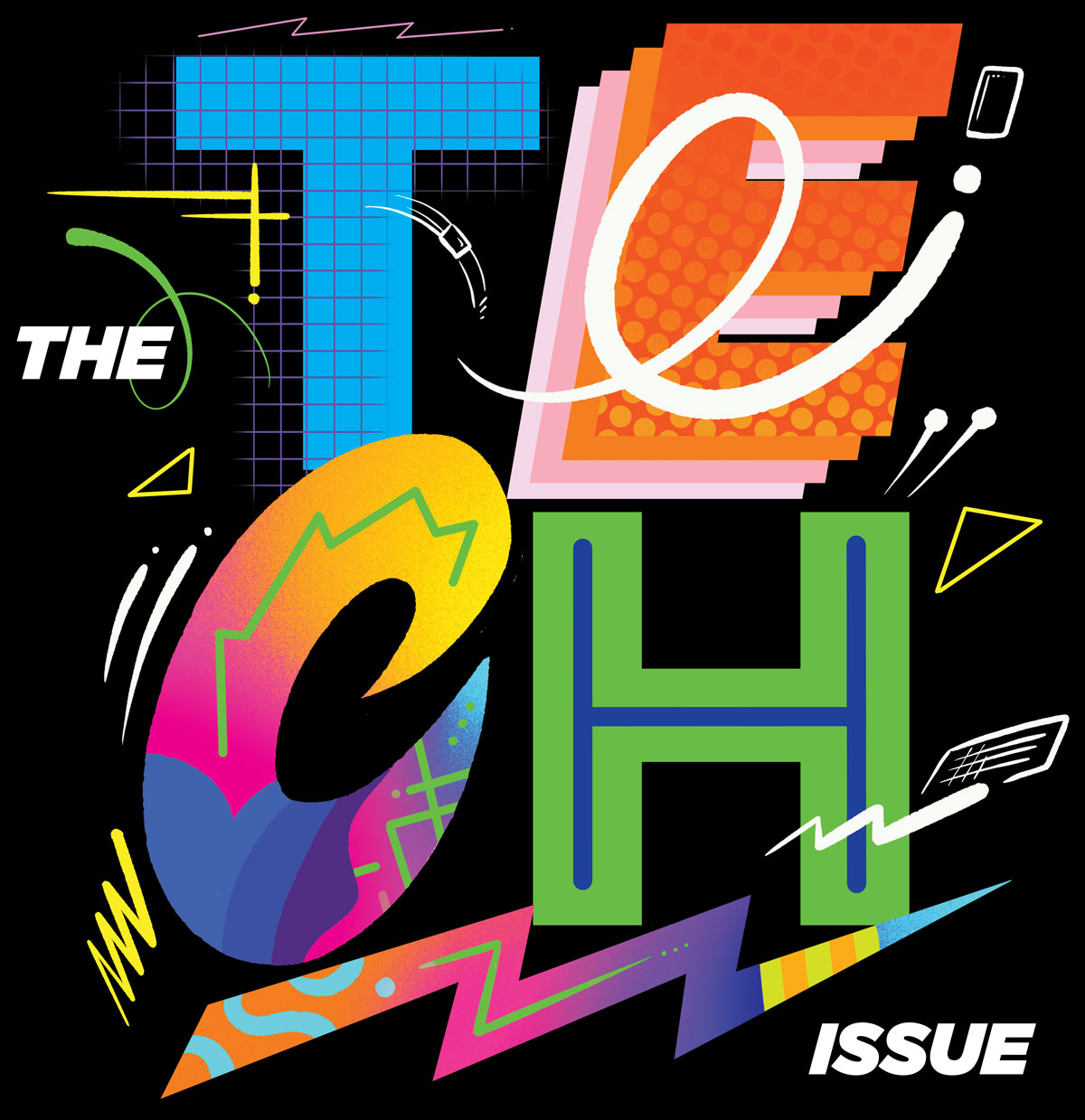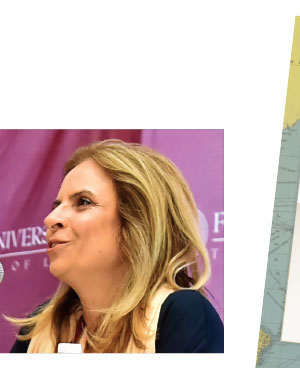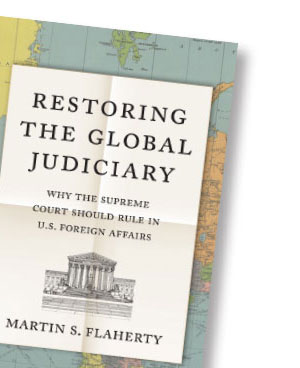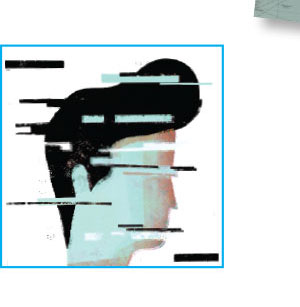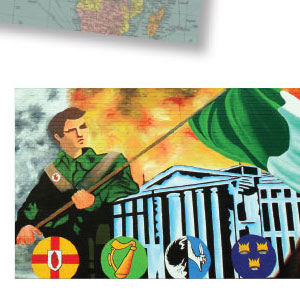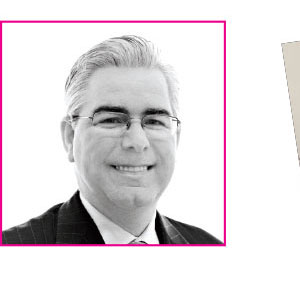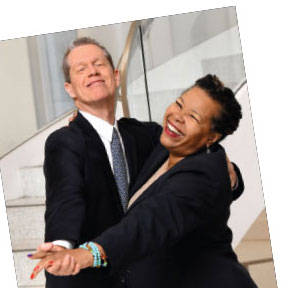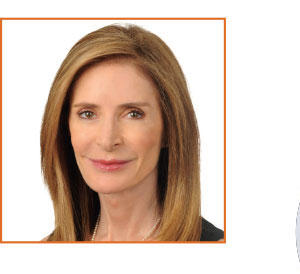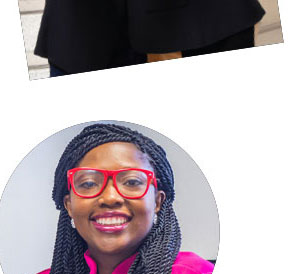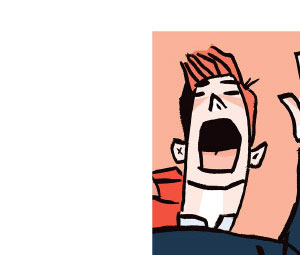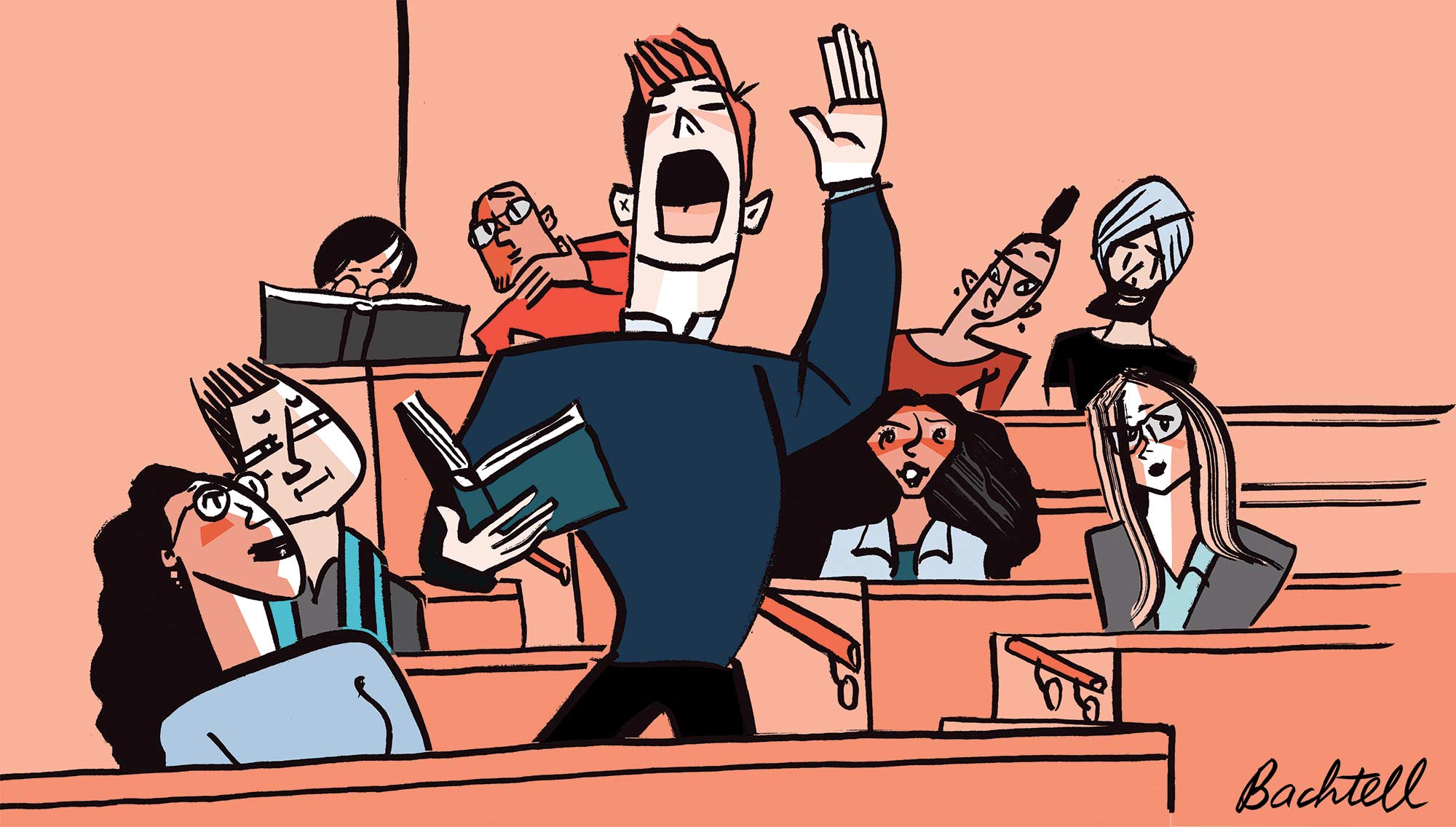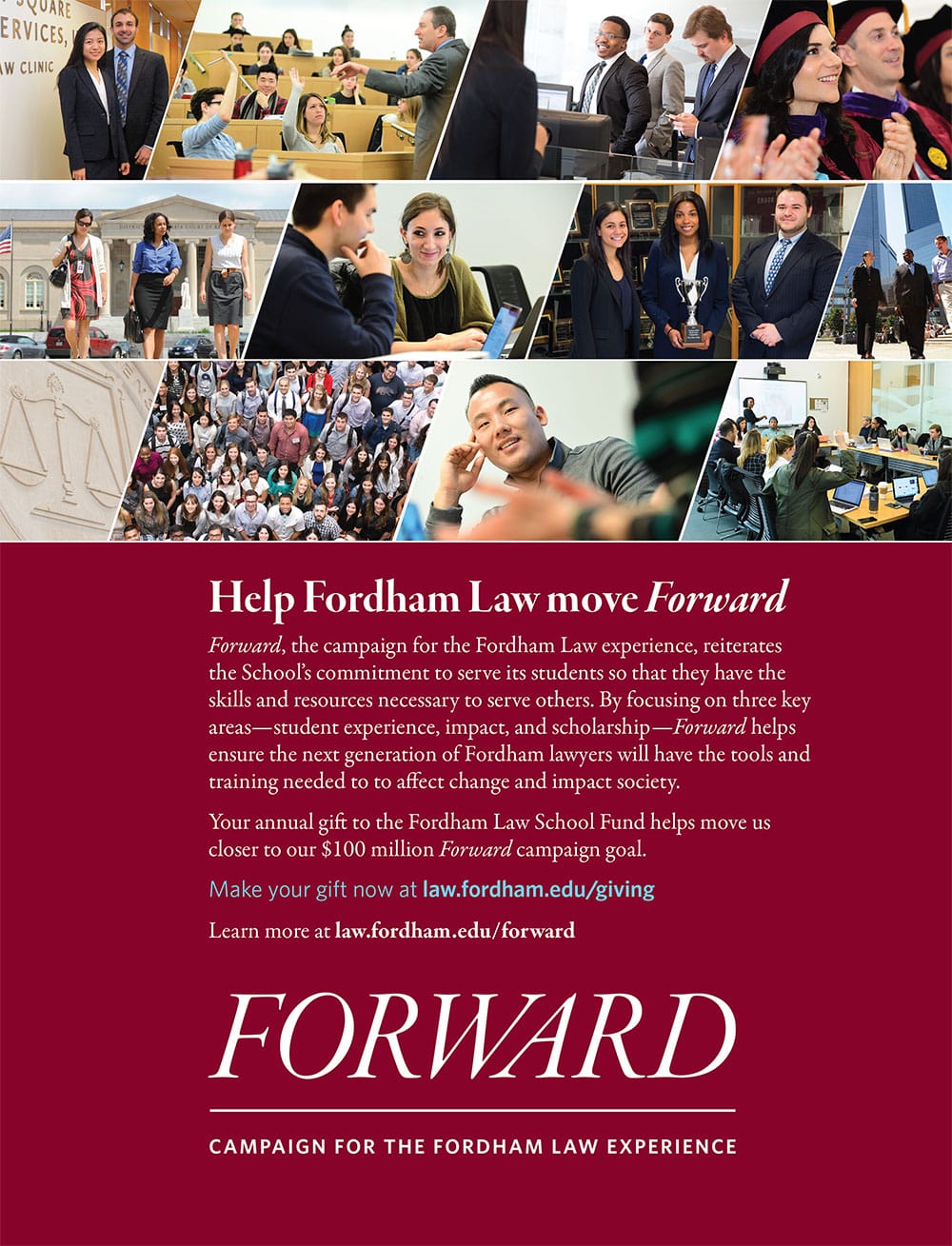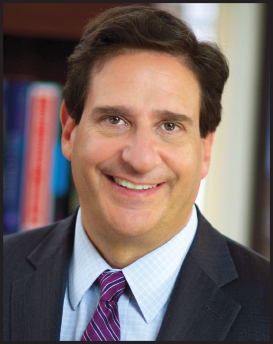


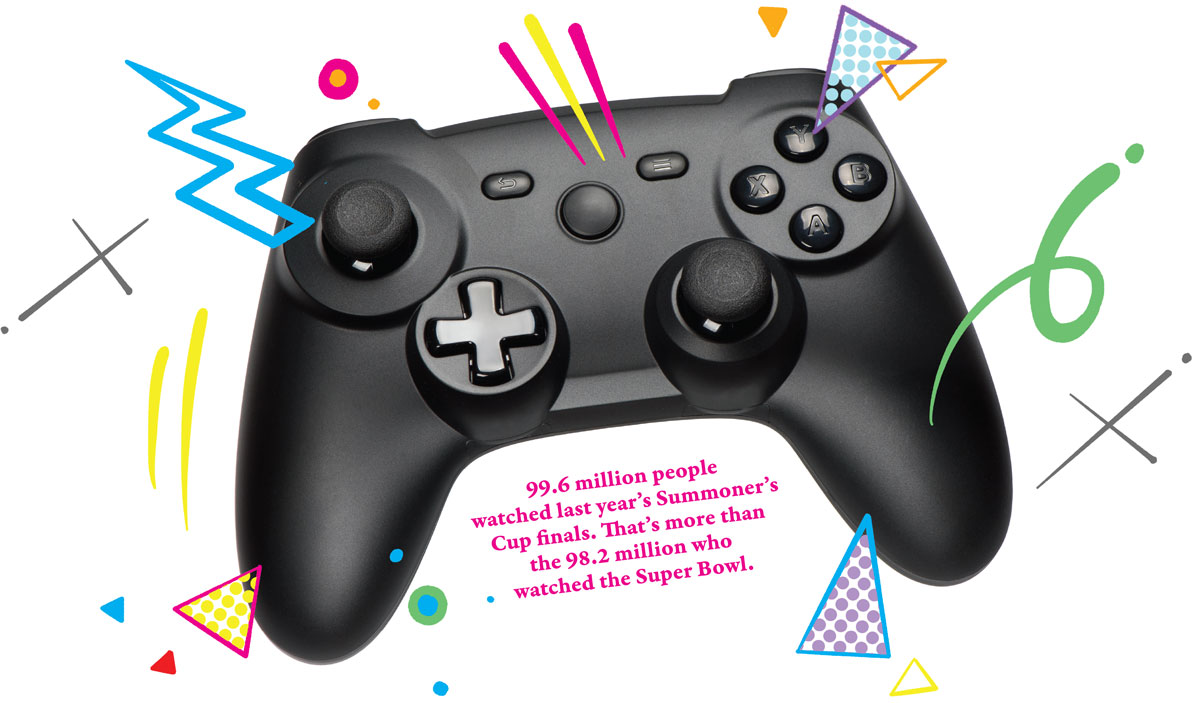
A passion for justice
Visiting Professor Shlomit Yanisky-Ravid always changes the female voice on Siri to male. That’s what she confided during a panel titled “International Perspectives on Artificial Intelligence & Gender Bias” at Fordham Law Women’s Second Annual Symposium, a collaboration with all six of Fordham Law School’s journals. Alexa and Siri may not have been there in the flesh, but they were there in spirit—and they wanted to know why they were stuck in dead-end secretarial jobs straight out of the Eisenhower era. Because the message at the symposium was clear: Despite the great hope that artificial intelligence (AI) would free us from the gender bias that’s all too present in human decision-making, the reality is that we are not quite there yet.
This year’s symposium, which took place on September 27, brought together lawyers, researchers, writers, activists, and academics from around the world to address topics concerning public policy’s gender impact, with panels including environmental justice and the intersection of gender, race, and reproductive rights.
Yanisky-Ravid, head of the IP-AI & Blockchain Project at the Fordham Law Center on Law and Information Policy (CLIP), introduced her panel by describing Amazon’s recent cancellation of a multiyear initiative to develop an AI-powered tool for recruiting employees. Amazon allegedly scuttled the project when the discovery was made that, despite efforts to eliminate bias, the algorithm was more likely to reject applicants for technical roles if their résumés included the word “women’s” (as in “women’s chess-club champion”).
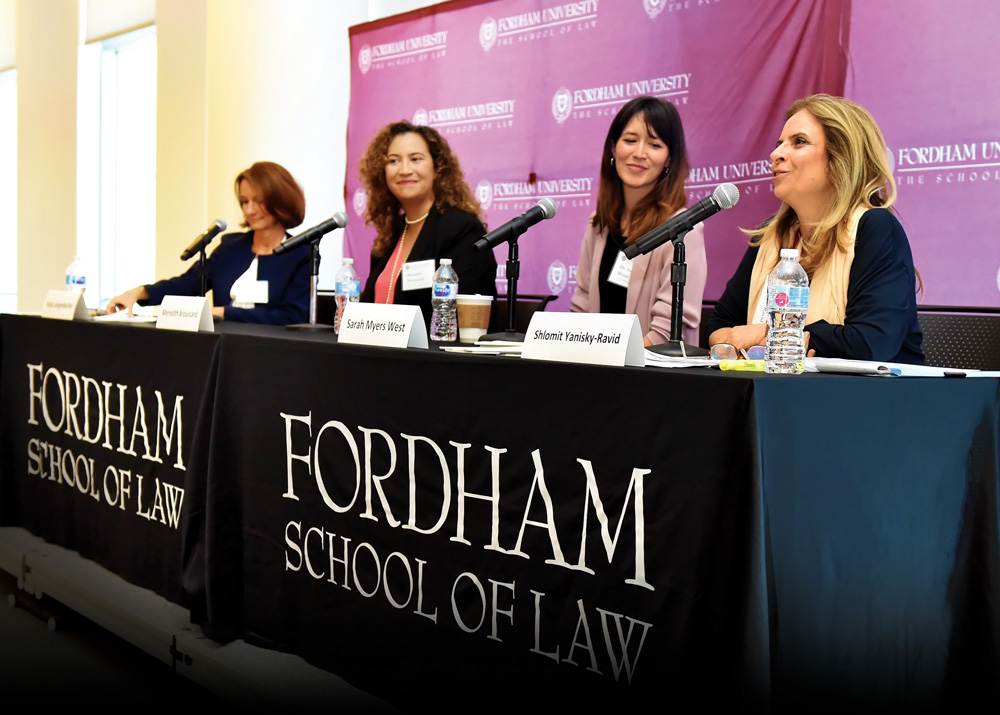
This year’s symposium, which took place on September 27, brought together lawyers, researchers, writers, activists, and academics from around the world to address topics concerning public policy’s gender impact, with panels including environmental justice and the intersection of gender, race, and reproductive rights.
Yanisky-Ravid, head of the IP-AI & Blockchain Project at the Fordham Law Center on Law and Information Policy (CLIP), introduced her panel by describing Amazon’s recent cancellation of a multiyear initiative to develop an AI-powered tool for recruiting employees. Amazon allegedly scuttled the project when the discovery was made that, despite efforts to eliminate bias, the algorithm was more likely to reject applicants for technical roles if their résumés included the word “women’s” (as in “women’s chess-club champion”).
Keeping the Internet Honest
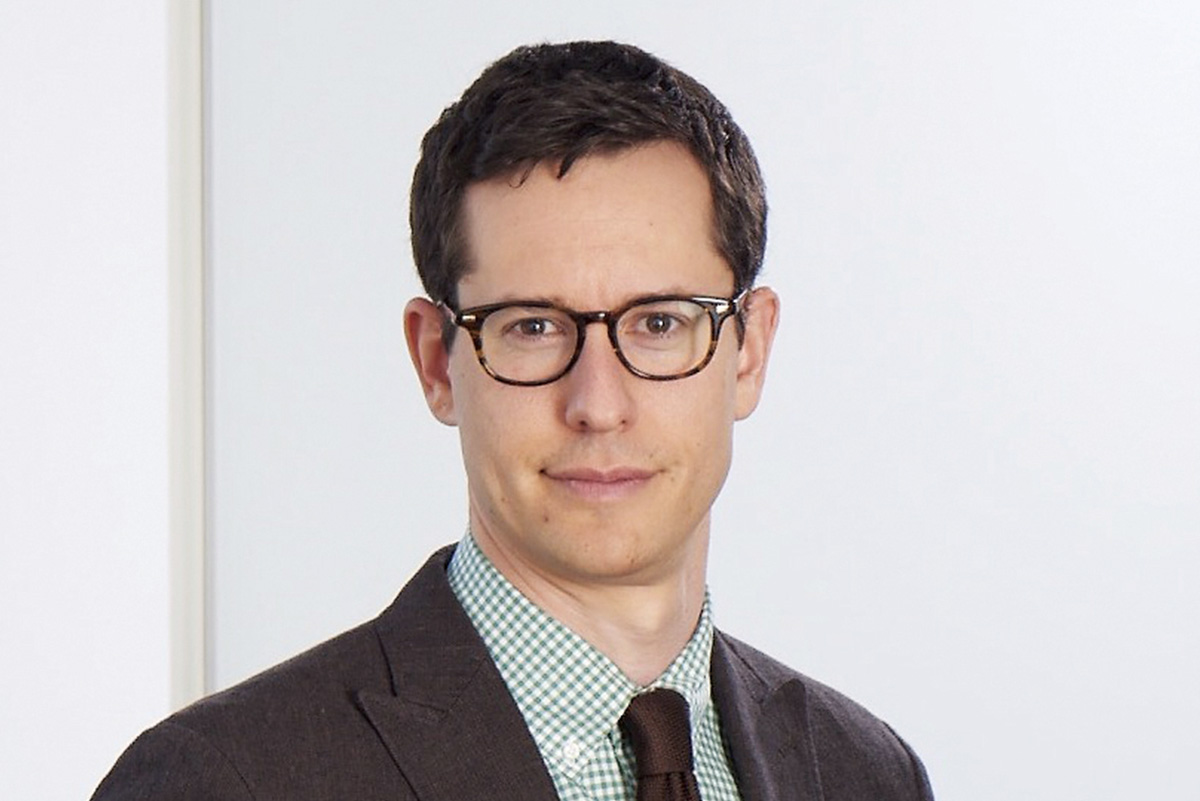
Stein is an assistant attorney general with the New York State Attorney General’s Bureau of Internet and Technology, an outfit that focuses exclusively on crimes committed in the digital realm. That puts Stein at the forefront of the ever-evolving battle to rein in the trolls, scammers, identity thieves, digital stalkers, and others who make the online world an often perilous place. Stein has helped shut down everyone from scalpers who use bots to scoop up hundreds of choice concert tickets to scammers who manufacture thousands of fake social media followers.

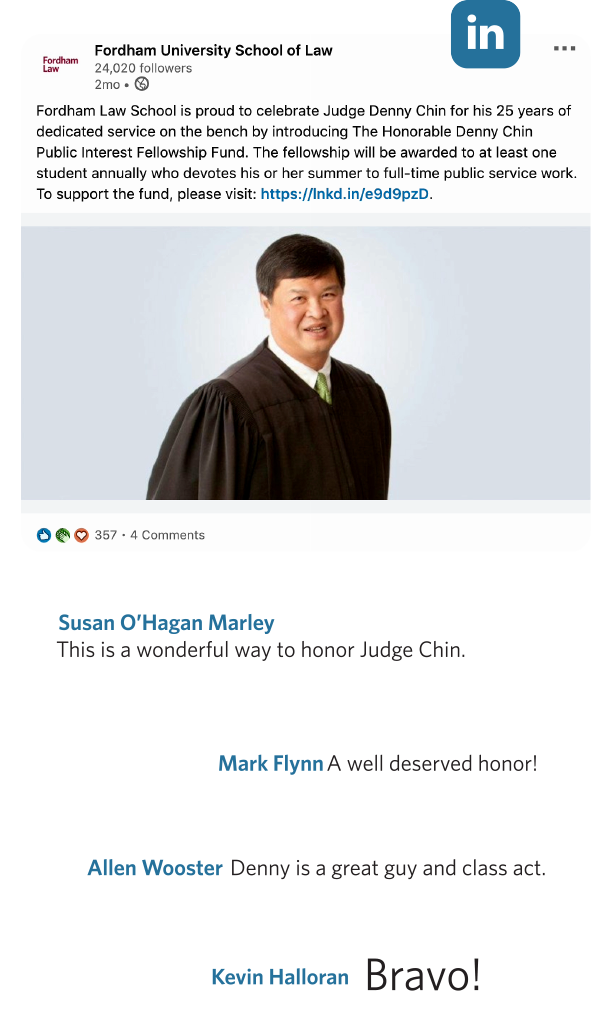
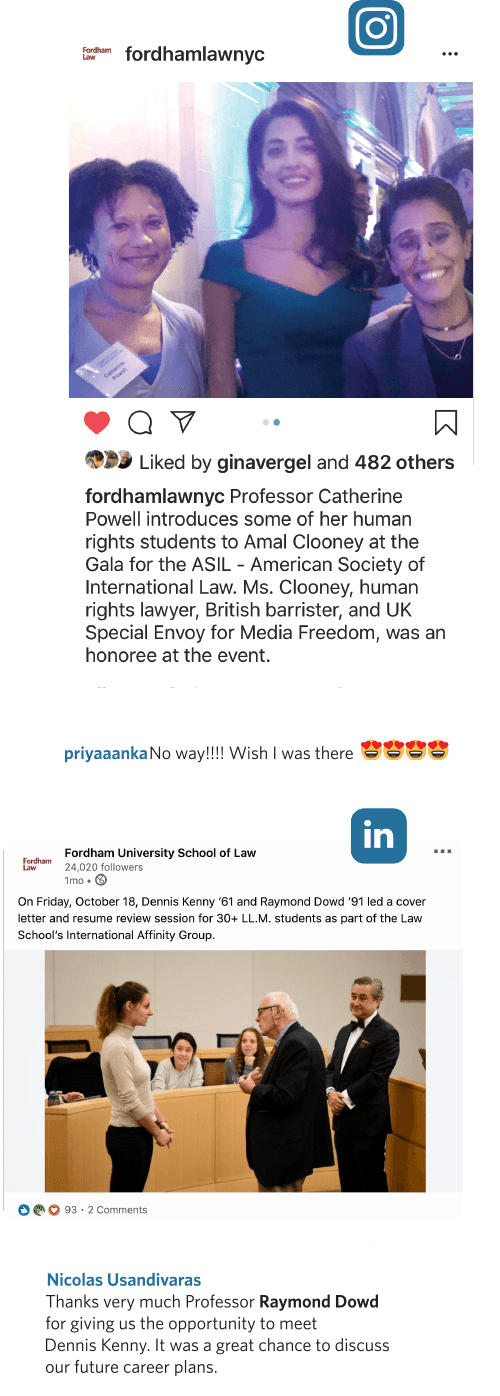
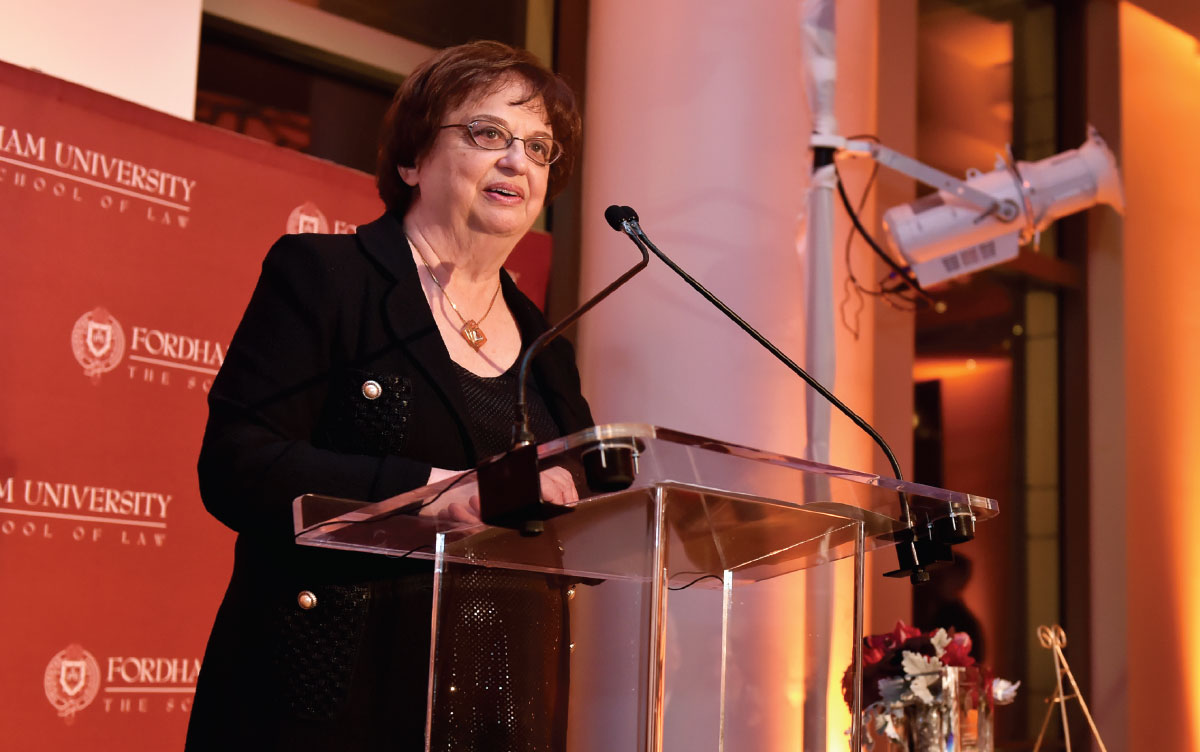
Underwood has been New York’s solicitor general since 2007, with the exception of May to December of 2018, when she served as New York’s first woman attorney general. Dean Diller described her as one of the nation’s leading Supreme Court advocates (she has argued before the U.S. Supreme Court 21 times). “Barbara Underwood is a lawyer’s lawyer,” said Diller. “She embodies the highest standards of the legal profession, promotes the advancement of justice, and acts as a fearless trailblazer for women in the law. And for that, we are thankful.”
Just a month earlier, on September 24, the Stein Scholars Program in Public Interest Law and Ethics awarded former faculty director and current Fordham Law legal ethics and criminal law professor Bruce Green the Stein Scholars “In the Service of Others” Award, for his leadership and commitment to shaping the values and ethics of students and alumni. Said Green: “I could not have imagined then that working with the Stein Scholars, along with my talented colleagues, would become the centerpiece and highlight of my teaching career.”
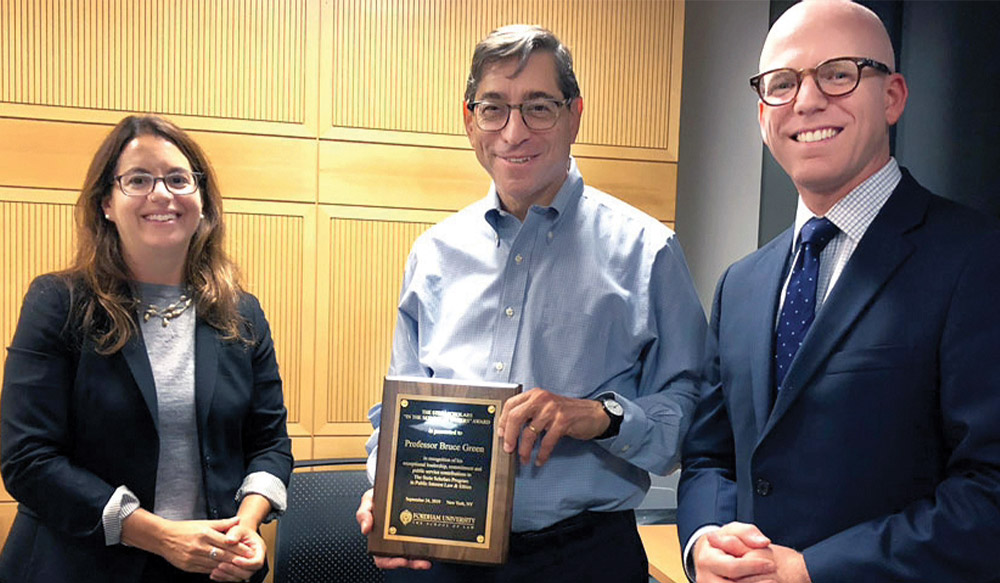
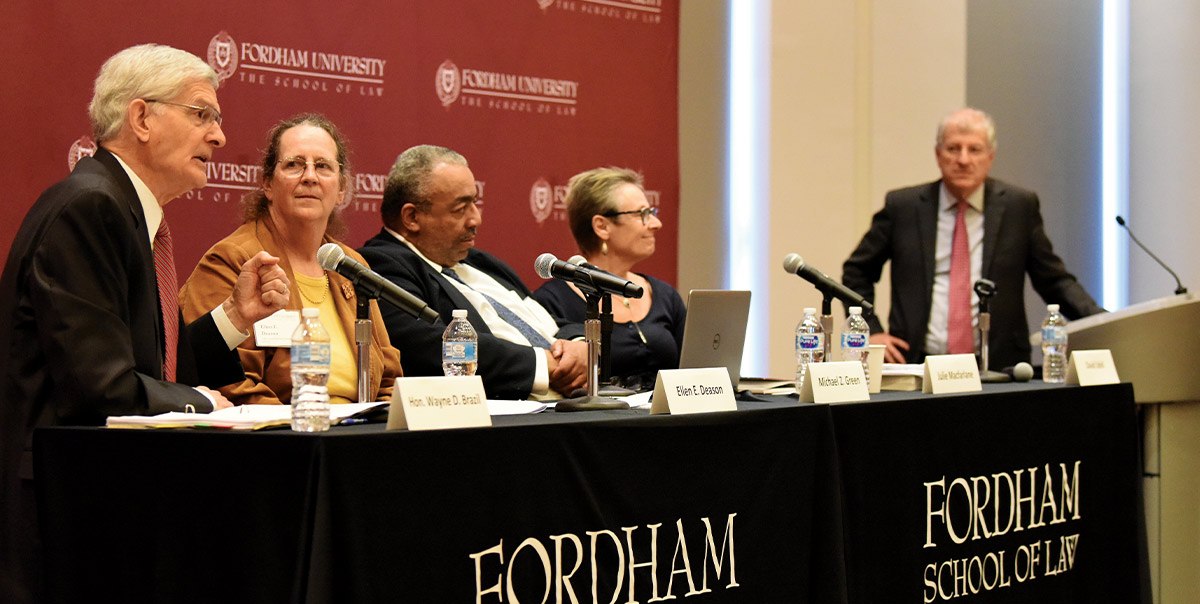
“Alternative dispute resolution [ADR] is increasingly becoming the norm rather than the alternative,” remarked Dean Matthew Diller to an audience of law students and ADR practitioners who gathered at Fordham Law School on November 1 to listen and contribute to panels including diversity in ADR practice, online dispute resolution, and cross-cultural perspectives. One reason: Traditional litigation can sometimes be more rigid, time-consuming, and expensive. The event, “Achieving Access to Justice Through ADR: Fact or Fiction?” was part of Fordham Law’s A2J Initiative, and was hosted by the Fordham Law Review, Fordham Law’s Conflict Resolution and ADR Program, and the National Center for Access to Justice at Fordham Law. In one panel, Ellen E. Deason, a law professor at the Ohio State University Moritz College of Law, highlighted ADR’s potential to produce results that could be better than those produced by a court directly applying the law: “Many of the mediation and arbitration values support the possibility of moving results of a dispute away from a court outcome and toward a different perception of justice,” she said. Julie Macfarlane, a law professor at the University of Windsor Faculty of Law, said she tends to focus more on access-to-justice issues. “In the U.S. and in Canada, more than half of the people who come to family court come without lawyers,” she observed. “There is a profound systemic bias against people who represent themselves and a real unwillingness to see them as equal players in the legal system. We need to think very seriously about the kinds of support that we offer people who lack representation so we can allow them to participate.”
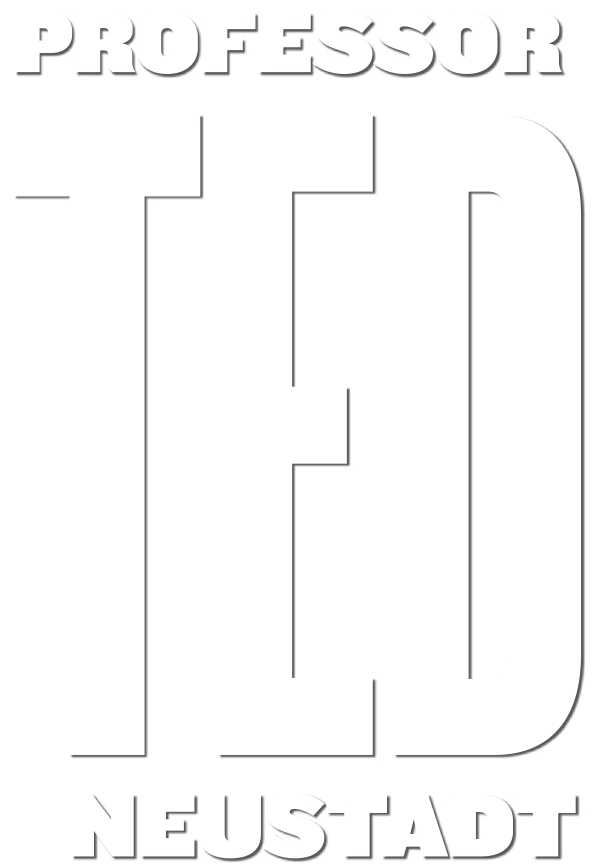
alk into Ted Neustadt’s office on the eighth floor of Fordham Law School, brimming with vintage Broadway posters, Playbills, and the stray headshot or two, and there’s a good chance you’d assume you were visiting the work space of a veteran actor, not to mention a serious theater buff. And you’d be right: In addition to stints at a law firm and teaching at Fordham Law for more than 30 years, the associate director of the Law School’s legal writing program has also had a thriving career as an actor in theater, movies, and TV commercials. The students in his legal writing classes get the benefit of that experience: “I know how to put on a good show,” says Neustadt, wryly. Here, he recounts the memories behind his memorabilia. —Paula Derrow
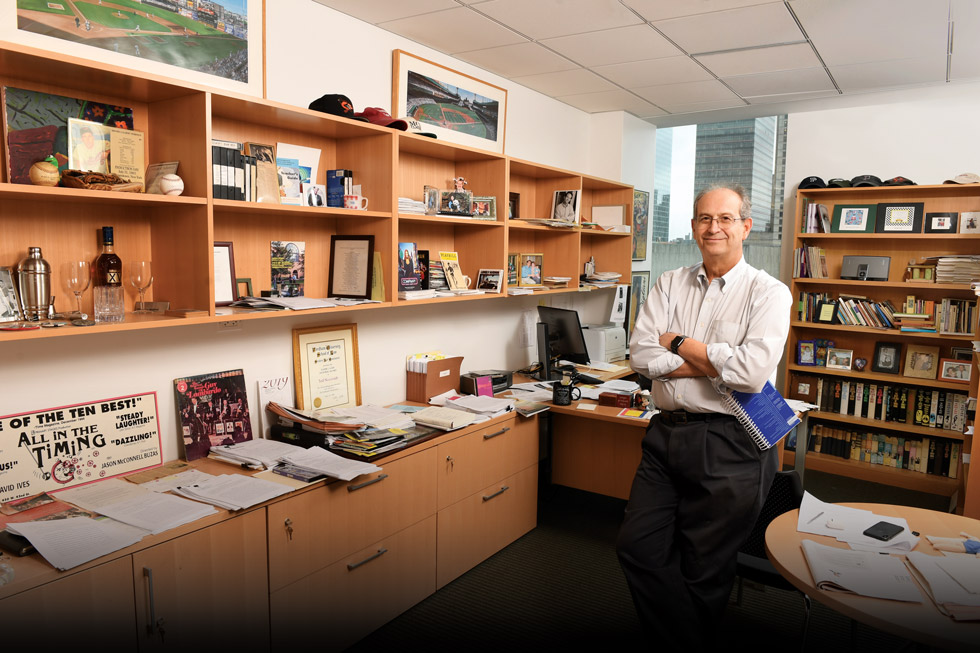

alk into Ted Neustadt’s office on the eighth floor of Fordham Law School, brimming with vintage Broadway posters, Playbills, and the stray headshot or two, and there’s a good chance you’d assume you were visiting the work space of a veteran actor, not to mention a serious theater buff. And you’d be right: In addition to stints at a law firm and teaching at Fordham Law for more than 30 years, the associate director of the Law School’s legal writing program has also had a thriving career as an actor in theater, movies, and TV commercials. The students in his legal writing classes get the benefit of that experience: “I know how to put on a good show,” says Neustadt, wryly. Here, he recounts the memories behind his memorabilia. —Paula Derrow


 alk into a firm where video game industry lawyers practice and, depending on your opinion, the goings-on can look either awfully fun or awfully nerdy. Yes, the attorneys can (and do) sometimes bill clients for playing games. Sean Kane ’98, who is widely acknowledged as a pioneer in the field, can plug into any conference room at his firm and play. In his office, he has framed remnants of Atari games dug up from the New Mexico desert—for years, legend had it that the company buried them after going bankrupt, which proved to be true.
alk into a firm where video game industry lawyers practice and, depending on your opinion, the goings-on can look either awfully fun or awfully nerdy. Yes, the attorneys can (and do) sometimes bill clients for playing games. Sean Kane ’98, who is widely acknowledged as a pioneer in the field, can plug into any conference room at his firm and play. In his office, he has framed remnants of Atari games dug up from the New Mexico desert—for years, legend had it that the company buried them after going bankrupt, which proved to be true.
In the early 2000s, pre-smartphone, Kane spotted a legal future in the industry and even taught a (packed) course on video game law at Fordham. Today, the kid who once put countless quarters into the James Bond–inspired arcade game Spy Hunter is the interactive entertainment co-chair at Frankfurt Kurnit Klein & Selz, where he advises more than 100 clients on games like Fortnite, among others. “When I’d first go to legal events, people would say, ‘Being a video game lawyer is a thing?!’” But the response from the video game industry was great. “They see the value of lawyers who understand the industry.”
Meanwhile, in the Los Angeles office of Mitchell Silberberg & Knupp, a triangular building with 60-degree angles, one angle is home to a gaming lounge with multiple consoles. “Like most office buildings, the walls are a little thin so you can’t go mad with the cheering,” notes Eleanor Lackman ’03, an entertainment and IP litigator who, among other things, deals with the legal side of e-sports—video games played competitively for live audiences, often by professionals. “You can’t work in entertainment and sports without knowing e-sports,” she notes. “No way. Not these days.”
Fordham Law School’s Belfast/Dublin Summer Program,
the lessons students are learning about international law, conflict, and what it takes to make peace feel more crucial than ever. Here, a look at the milestones, and at what the future holds.

In group shot: Fordham-Ulster Conflict Resolution Program participants in 1996.
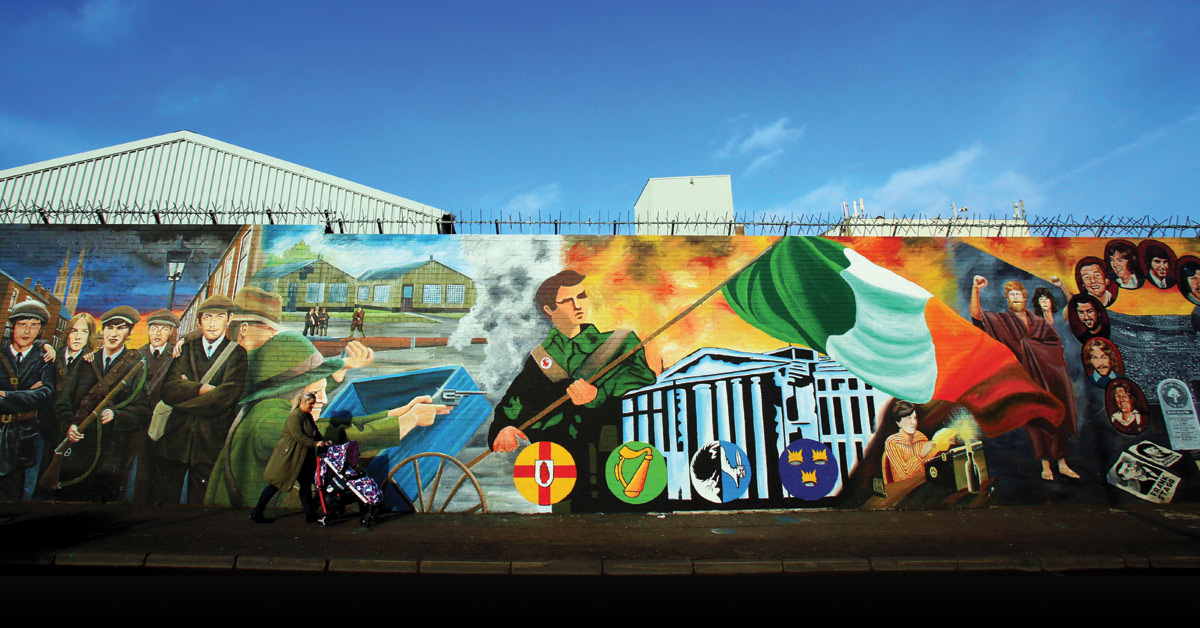

Fordham Law School’s Belfast/Dublin Summer Program,
the lessons students are learning about international law, conflict, and what it takes to make peace feel more crucial than ever. Here, a look at the milestones, and at what the future holds.
Fordham Law School’s Belfast/Dublin Summer Program,
the lessons students are learning about international law, conflict, and what it takes to make peace feel more crucial than ever. Here, a look at the milestones, and at what the future holds.

In group shot: Fordham-Ulster Conflict Resolution Program participants in 1996.
Feerick accepted the invitation, and took back an impression of common humanity. “The people there wanted what we all want—a peaceful society for their families,” he says. But Hume’s second request lingered in his mind, particularly when, the following year, he joined Bill Clinton and a group of 30 academic and business leaders on the first-ever presidential visit to Northern Ireland. Clinton, it turned out, also wanted more from Feerick. At the end of the trip, he challenged the men and women in his entourage to find ways to invest in Northern Ireland.
Feerick immediately knew that his investment would not be of the financial kind. “Instead, I got the idea to bring together the major law schools in the North and South of Ireland, for the first time in history,” says Feerick.
Fordham Law would be the bridge.
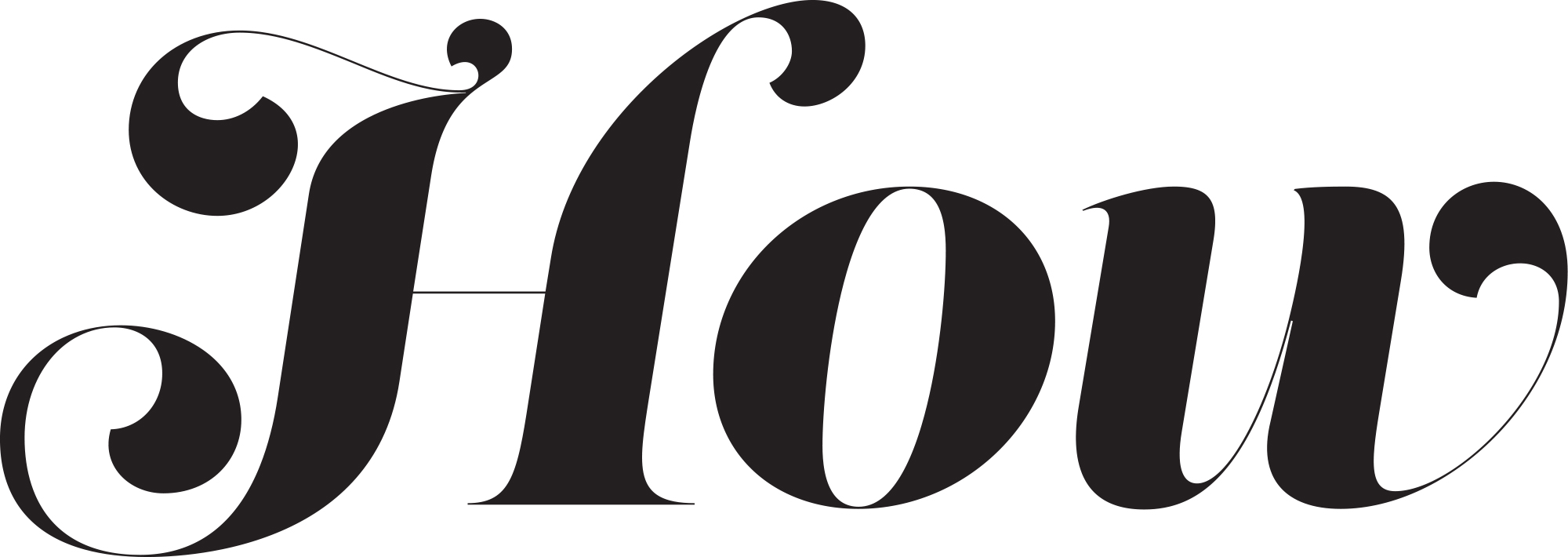 does one transition from the arts world to the legal world?
does one transition from the arts world to the legal world? does one transition from the arts world to the legal world?
does one transition from the arts world to the legal world? does one transition from the arts world to the legal world?
does one transition from the arts world to the legal world?The career shift from performance to public policy was initially propelled by the aches and pains that come with dancing for a living. “By the time I was 28, I had severe tendinitis in my toes and in my hips; I’d been dancing for 25 years and my body was saying, ‘That’s it,’” she says. “But I realized that working as an artist, I’d built business management skills. I’d read contracts, managed a complex schedule, and had so much experience negotiating a fair deal.”
Indeed, when fellow dancers in one company she was in began having contract issues, they urged her to do the talking. “We were about to go on tour and were rehearsing during the day and performing at night,” recalls Dunlap. I told management, ‘This is way more than an eight-hour day.’ The operations person’s face just froze. He said, ‘How do you know that?’ It was because I knew the law!”
—Erin DeGregorio
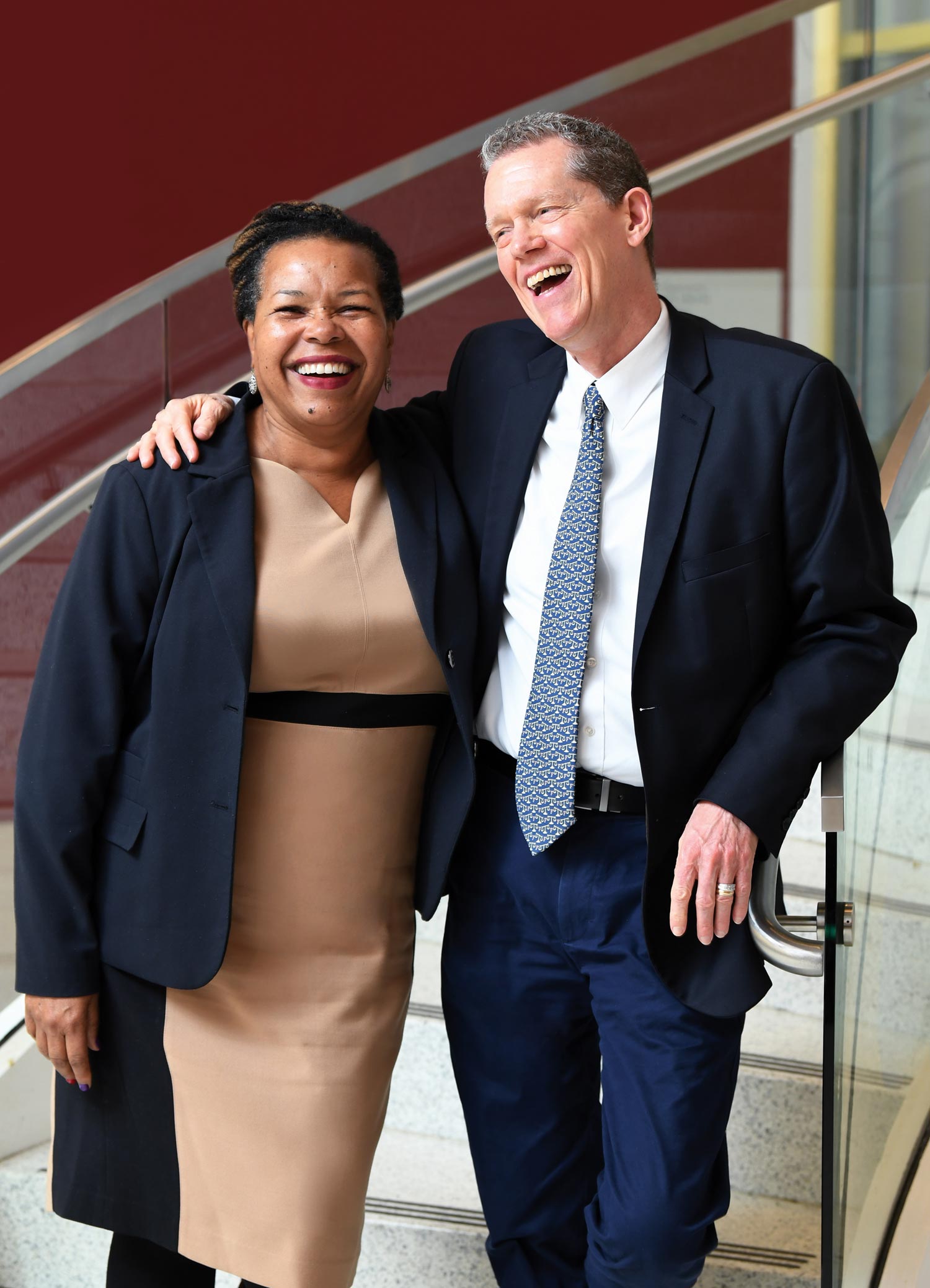
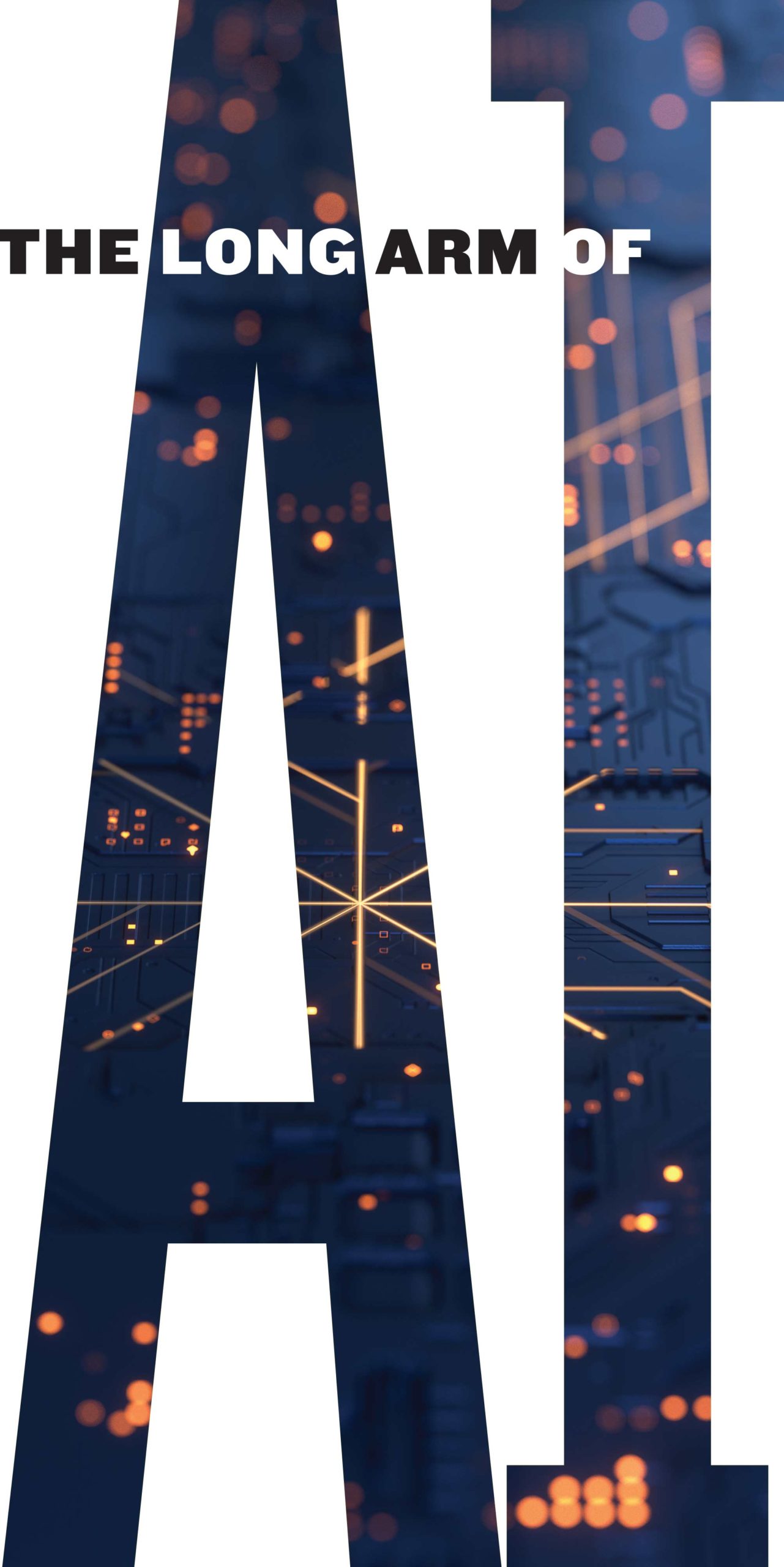
Deborah Denno: As the founding director of the Neuroscience and Law Center at Fordham Law School, one of the points I wanted to make is that neuroscience—the study of the human brain—is really the foundation for artificial intelligence and robotics. Both AI and robotics try to mimic how human beings think and process information. That connection with human cognition sometimes gets lost when we as a society think about new technologies. The idea of the issue was to try to explain and spotlight that connection and some of the dangers that come with it.
FL: What kind of dangers?
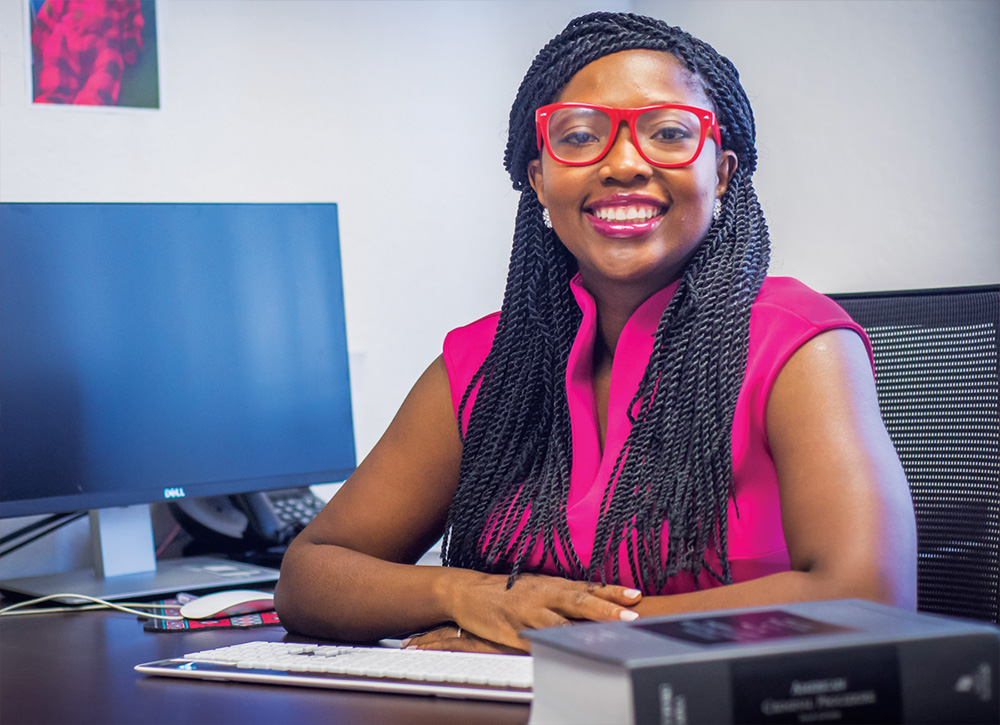
sy India Thusi, 36, was only a few months old when she and her parents emigrated from Nigeria to Yonkers, New York, as part of a wave of Africans arriving to study at universities in the United States and other western countries in the early ’80s. While her mother and father eventually found their professional footing—he is a doctor, she is a teacher—Thusi had her own future as a lawyer mapped out by the time she was 8 years old. “An uncle might have suggested it, and I was also into debating,” she says. “I just knew I wanted to be a lawyer.”
She is also clear on what fueled her passion for social justice and civil rights law. At Gorton High School in Yonkers, she was shocked to see so many students of color disappearing into the school-to-prison pipeline: “I observed how intense policing and criminalization were, especially around marijuana,” she says. “A lot of the people I knew were getting arrested or even incarcerated, and I had a sense even back then that it just wasn’t right.”
Another thing that shocked her during high school: In her freshman year, she learned that though her parents were here legally, she herself was undocumented. After that, she says, she lived in constant fear, writing in a 2016 HuffPost essay that this new knowledge “did something to my psyche.” Although Thusi eventually attained legal status, she attributes the fact that she avoided deportation to sheer luck. “If I had been racially profiled, like many of my high school friends, my story would be different,” she says.
Instead, Thusi trained her sights on succeeding at school. When the administrators at Gorton told her they couldn’t offer A.P. Physics, she studied on her own—and passed the A.P. exam.
At Emory University in Atlanta, she showed that same kind of maverick determination, rechartering the school’s NAACP
chapter. She also launched a program that organized poetry slams and workshops in local juvenile detention centers. These efforts, she says, were partly a response to racism on campus. “The student newspaper ran an editorial about the biological inferiority of black people,” Thusi recalls. “There was an outcry, but Emory is a Southern school. At the time, one of the richest fraternities there had a Confederate flag flying. All these experiences came together and informed my outlook.”
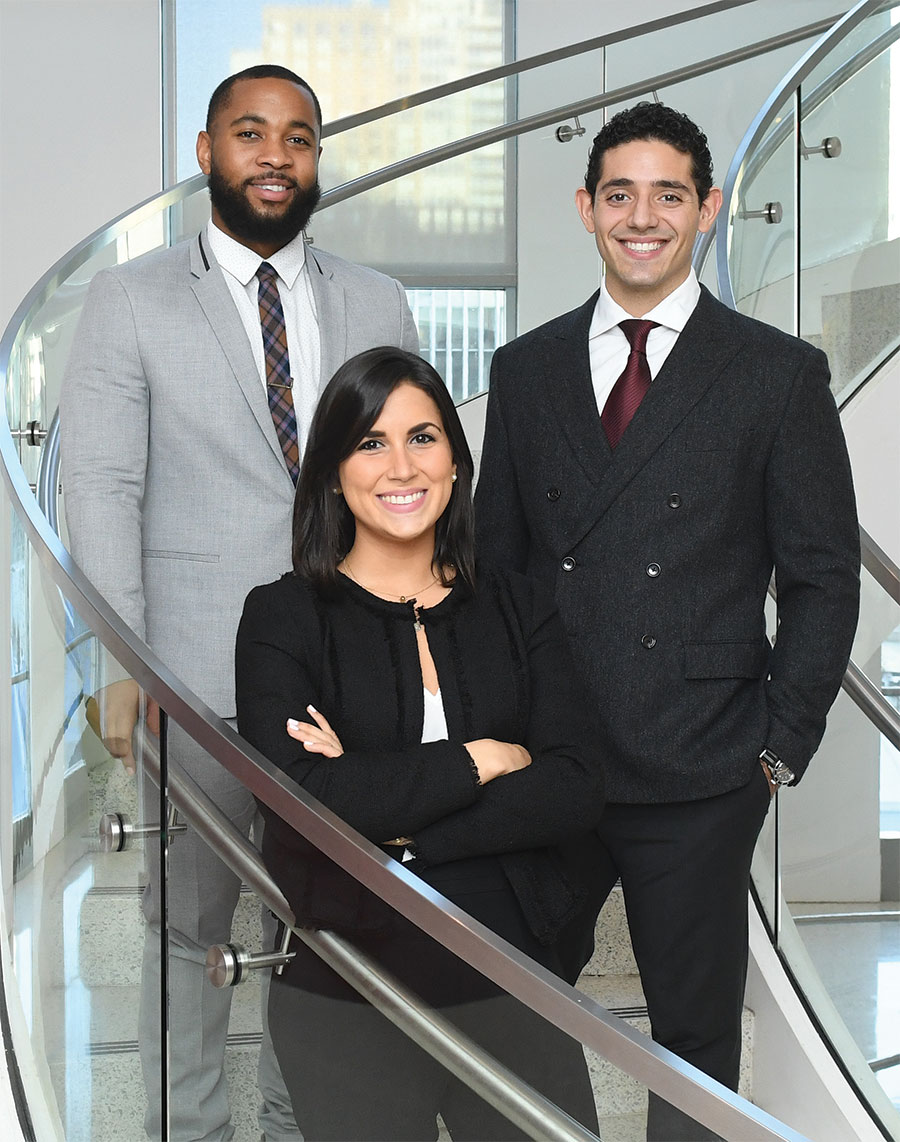
Join us to discuss how to make the case. Get Fordham facts and figures and hear from the experts Palmina Fava ’97, partner, Vinson & Elkins; Matthew Putorti ’11, senior associate, Pillsbury Winthrop Shaw Pittman LLP; and Dean Matthew Diller.
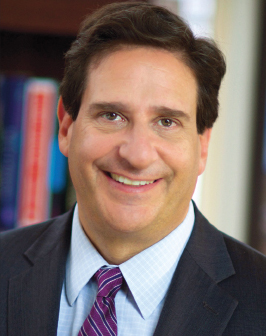

ou might think that people being sued for consumer debt are victims of their own bad habits—namely, irresponsible overspending. But stop by the Bronx Civil Courthouse on a Thursday afternoon and a different picture emerges.
Court may not be in session, but the rooms will be filled with litigants in consumer debt cases, along with lawyers, law students, and other volunteers with the Bronx Civil Legal Advice and Resource Office (CLARO), a clinic that advises ordinary folks being sued for debt that is run by Fordham Law School’s Feerick Center for Social Justice.
“Most of the people who come [seeking help from CLARO] are low- and moderate-income New Yorkers, many of whom are working more than one job, whose wages just haven’t been able to keep up with the cost of living,” explains Dora Galacatos ’96, adjunct professor of law and executive director of the Feerick Center. Some are victims of predatory and fraudulent lending schemes. Many of them are being pursued by debt collectors who use sketchy—and often illegal—means to bring suits and pressure consumers into making payments they may not in fact owe. More than a few learn they have a judgment against them long after the case was filed and find out only when their wages are garnished or they are unable to withdraw money from an ATM.
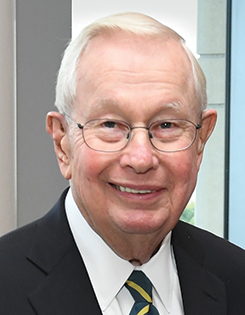
Stamford Superior Court Judge Edward R. Karazin Jr. of Westport, Connecticut, has been honored by the Fairfield County Bar Association with the Robert Callahan Judiciary Award.
Henry Goldberg was named to the Best Lawyers in America list for 2020.
William M. Savino was recognized by The Legal 500 in the Industry Focus: Insurance–Advice to Insurers category and also received the Long Island Business News Hall of Fame award for his distinguished leadership in the Long Island community. In addition, he was named to the Best Lawyers in America list for 2020, and to the New York Metro Super Lawyers list.
Finbarr J. O’Neill was named chairman and CEO of APCO Holdings LLC.
Frank C. Ingriselli joined the board of directors at NXT Energy Solutions Inc.
John Mara, president and co-owner of the New York Giants football team, entered into a partnership with Fordham University.
David Koenigsberg was named Lawyer of the Year by the Taxpayers Against Fraud Education Fund at their annual meeting.
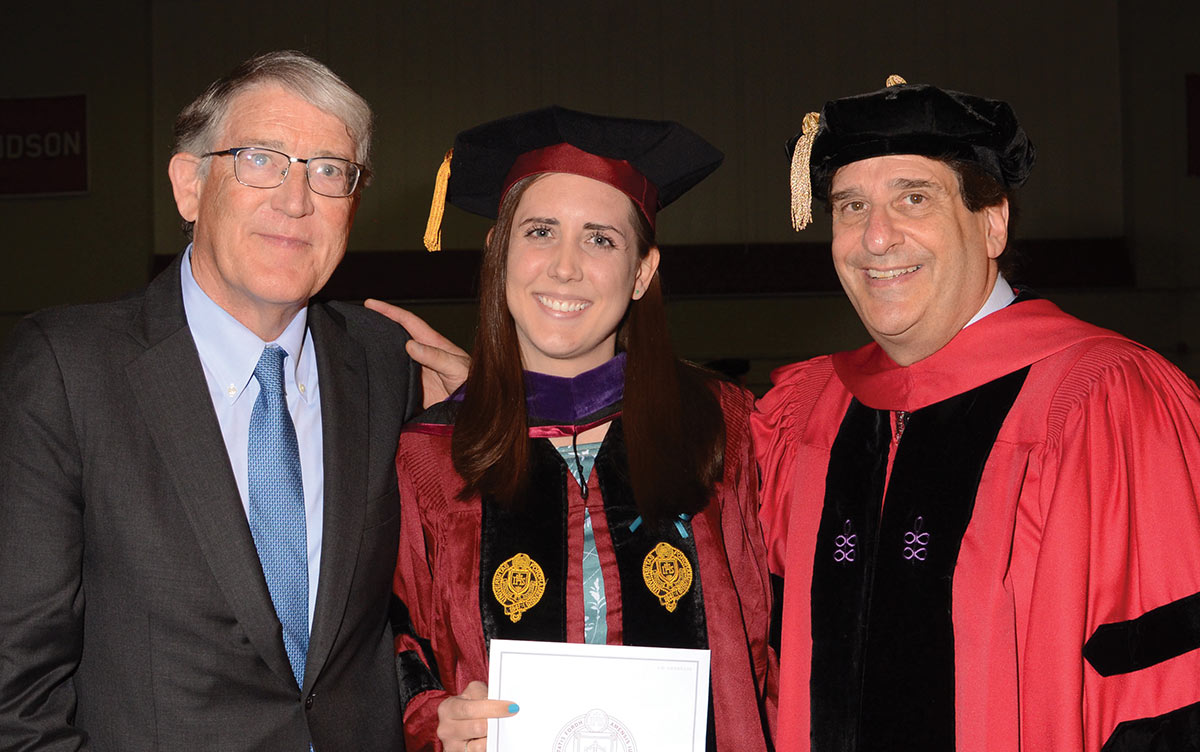
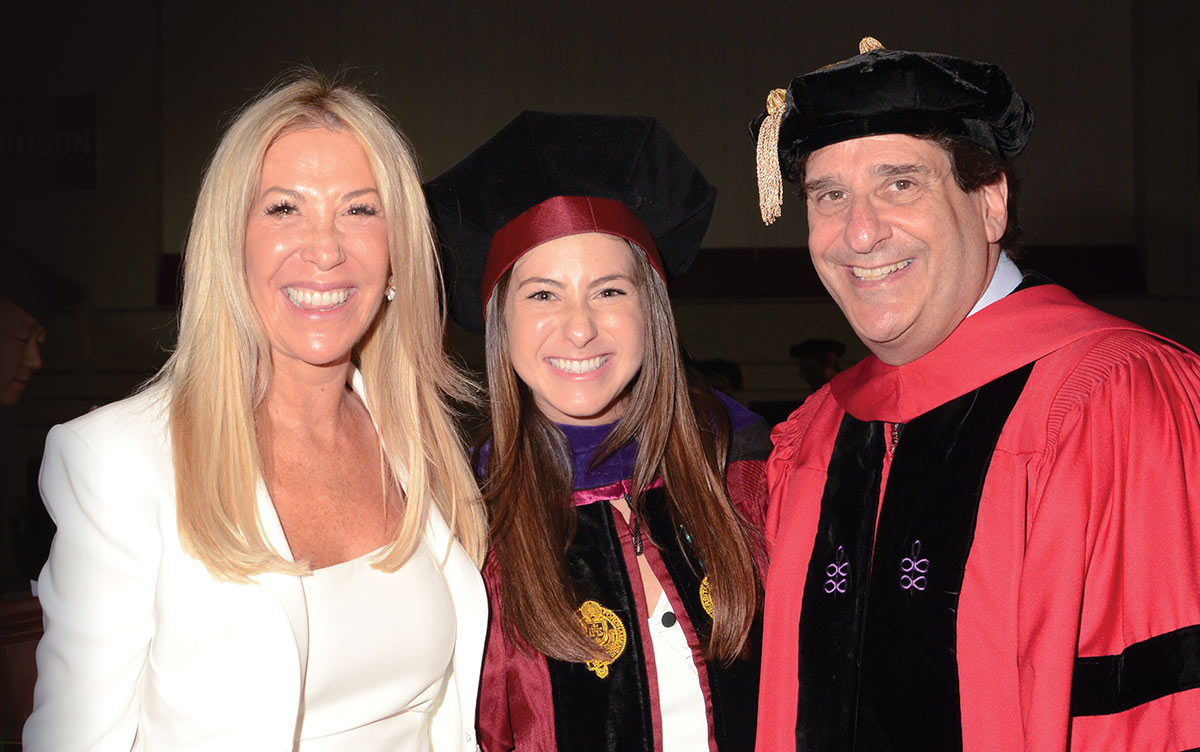
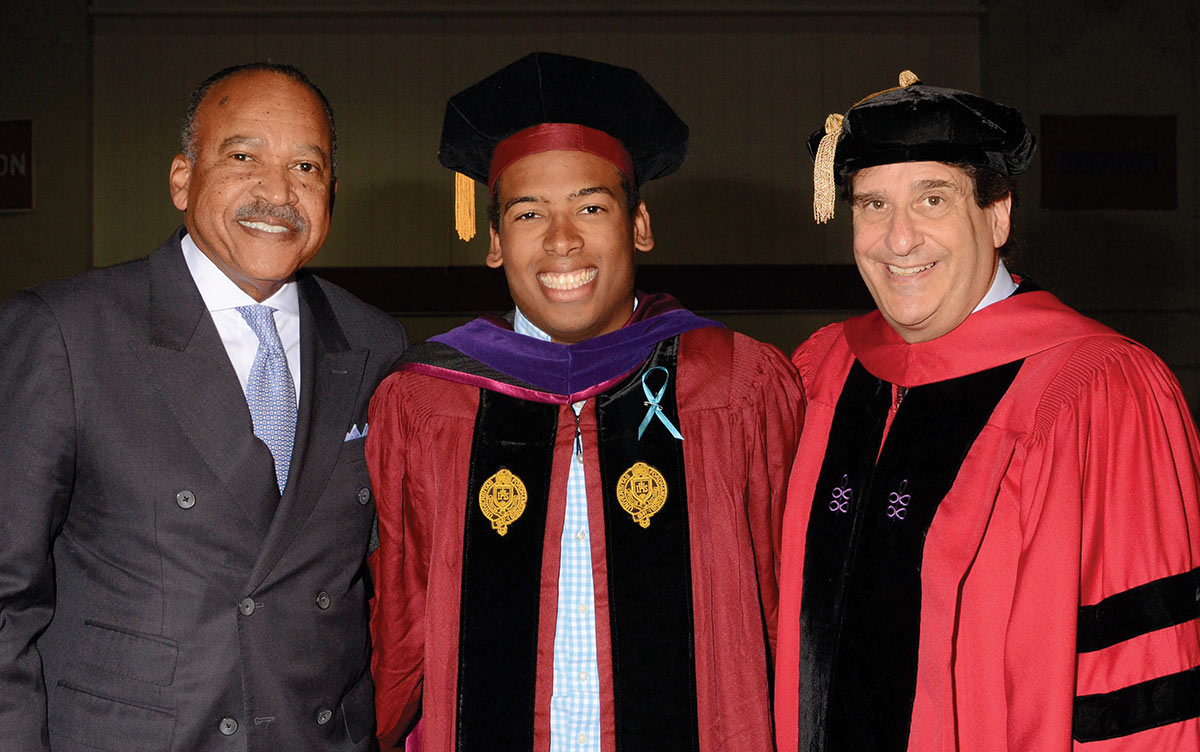
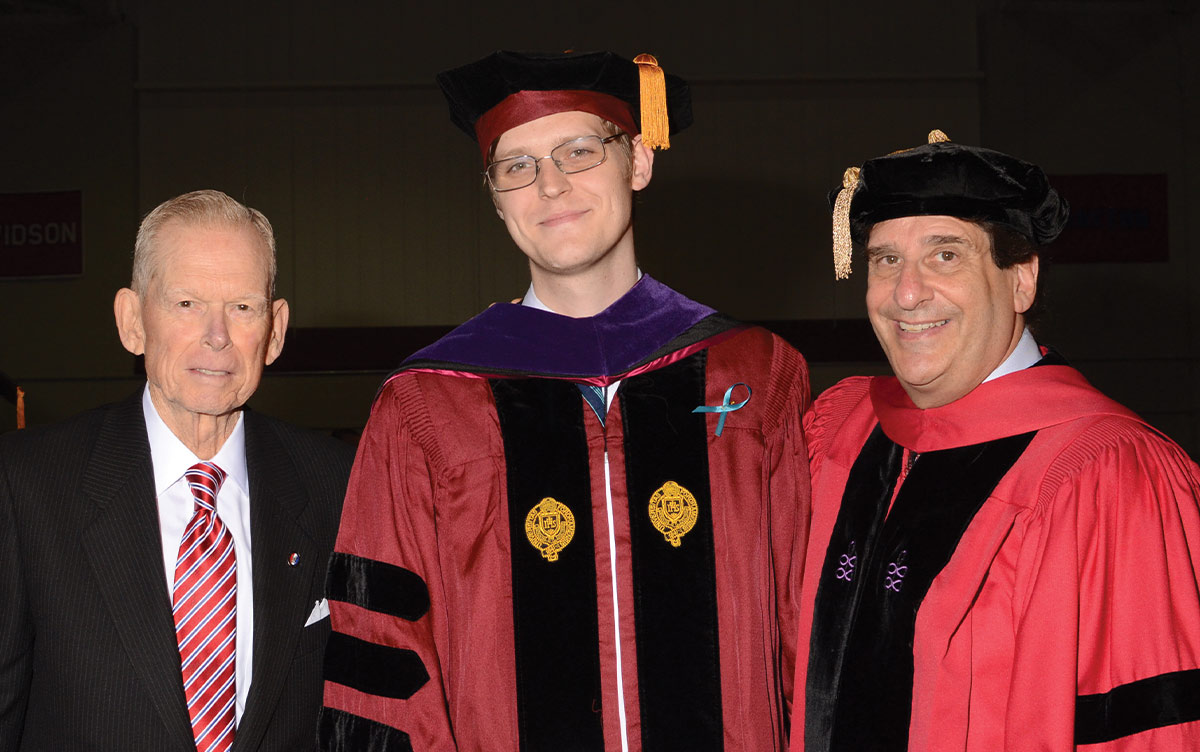
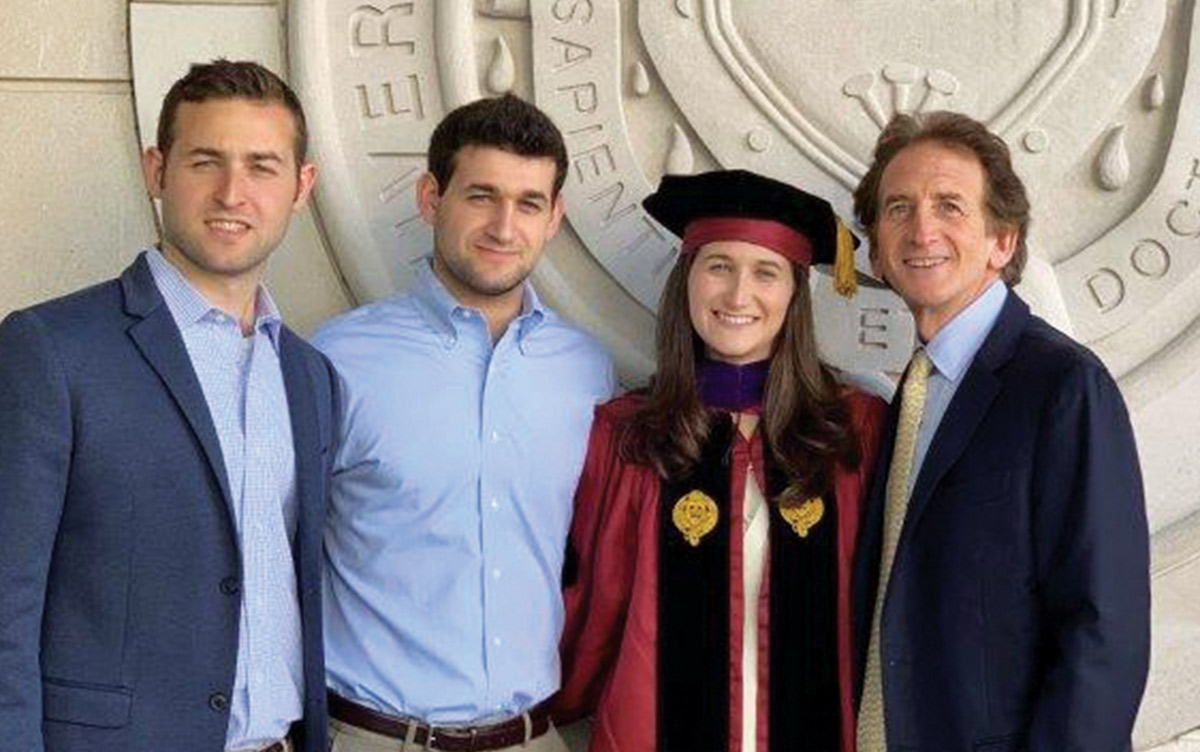
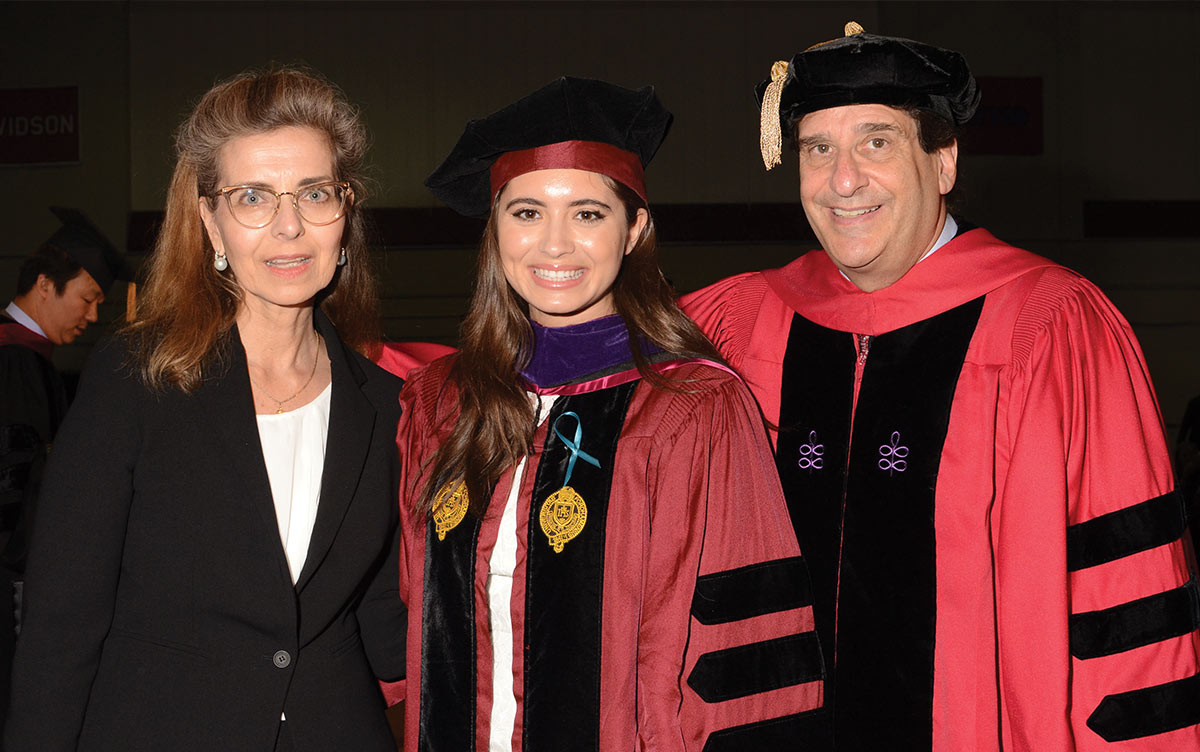

Here, photos of those alumni who took part in one of the Law School’s great traditions, which celebrates generations of Fordham Law graduates—the presenting of diplomas to graduating students by immediate family members who also attended the Law School.
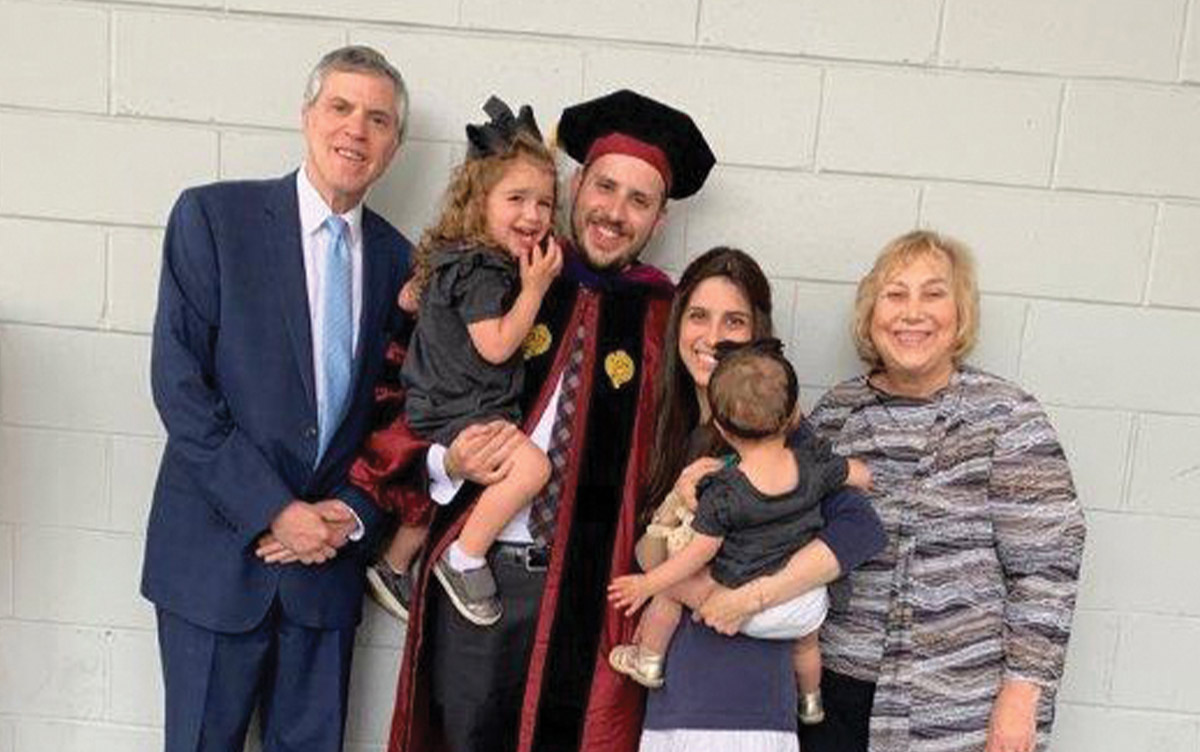
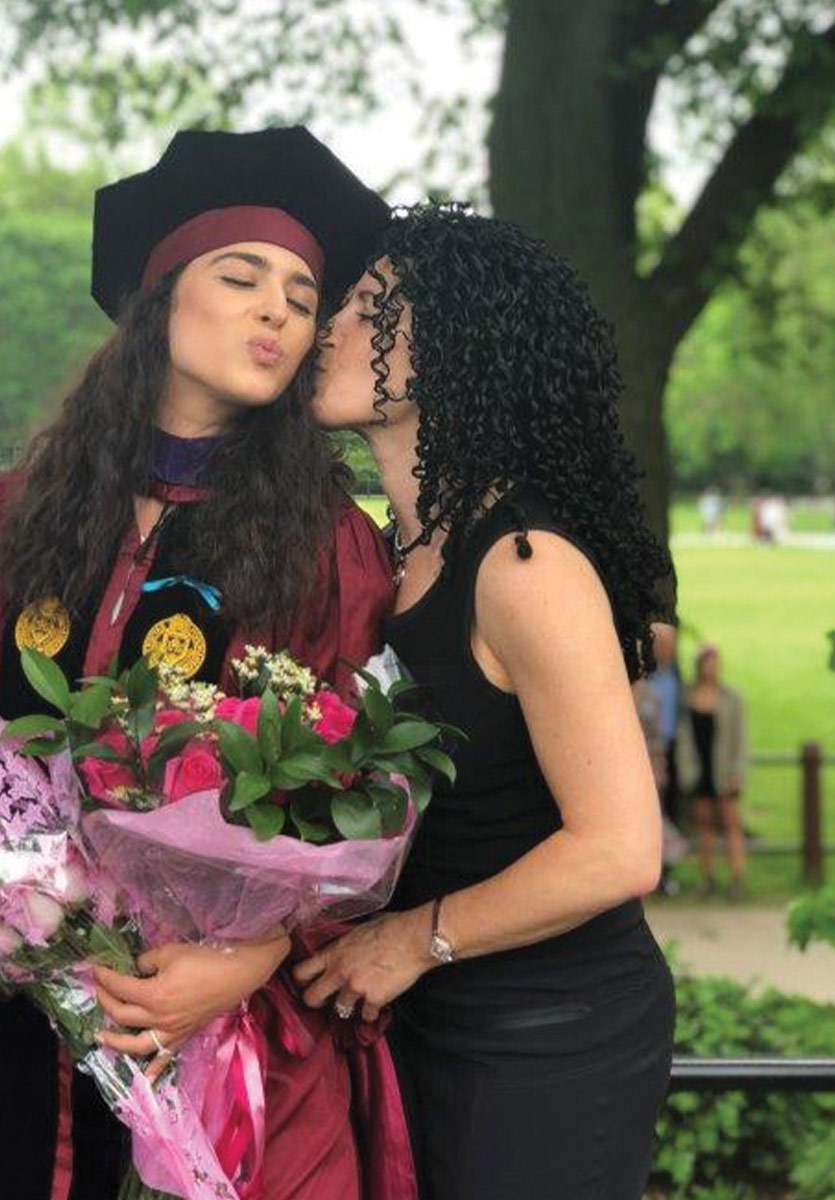
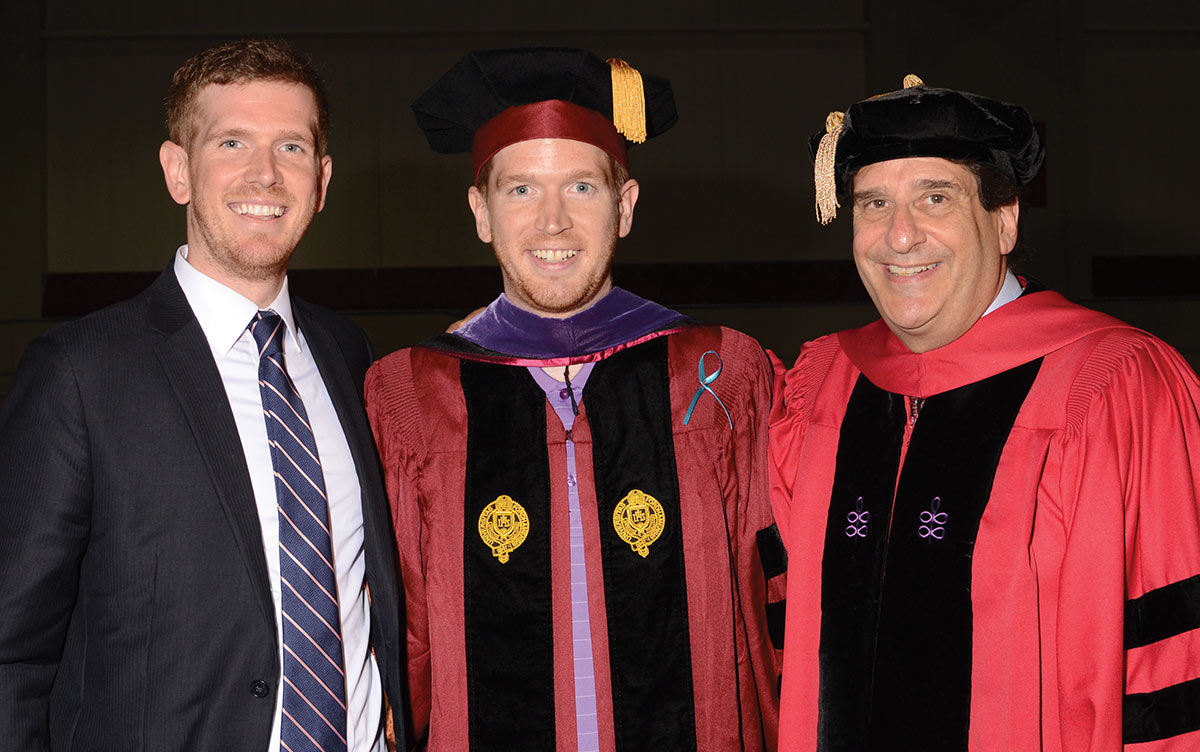
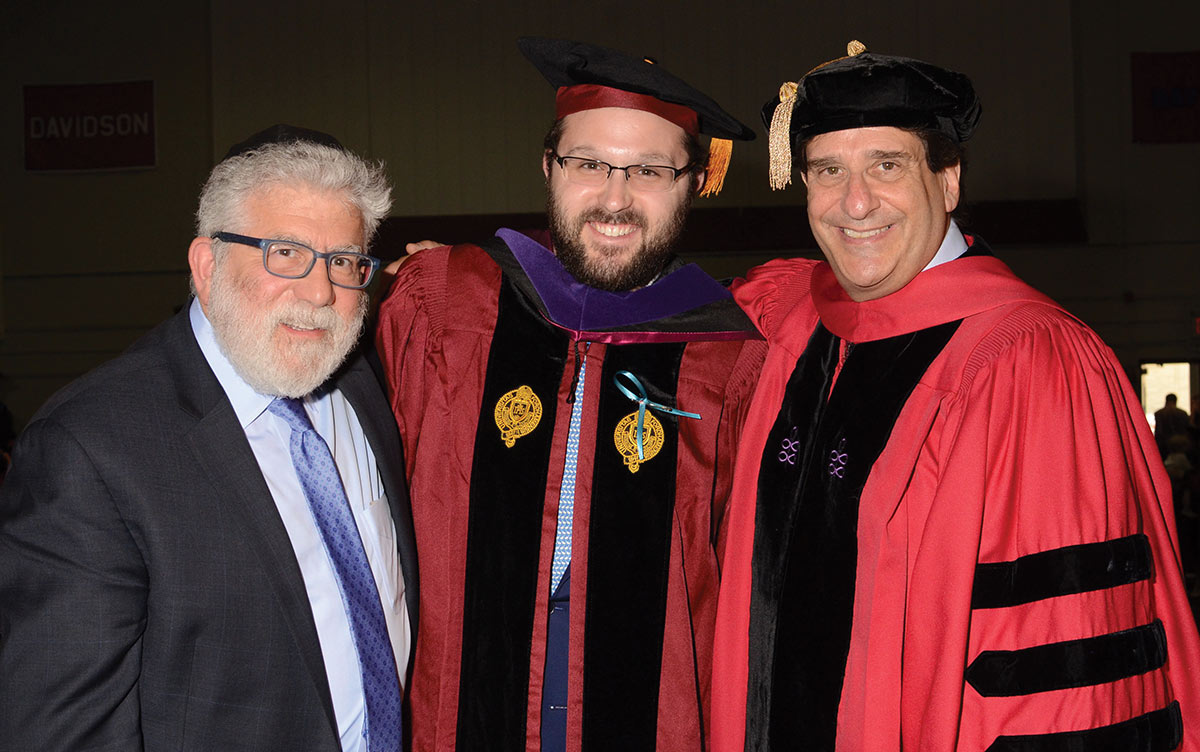
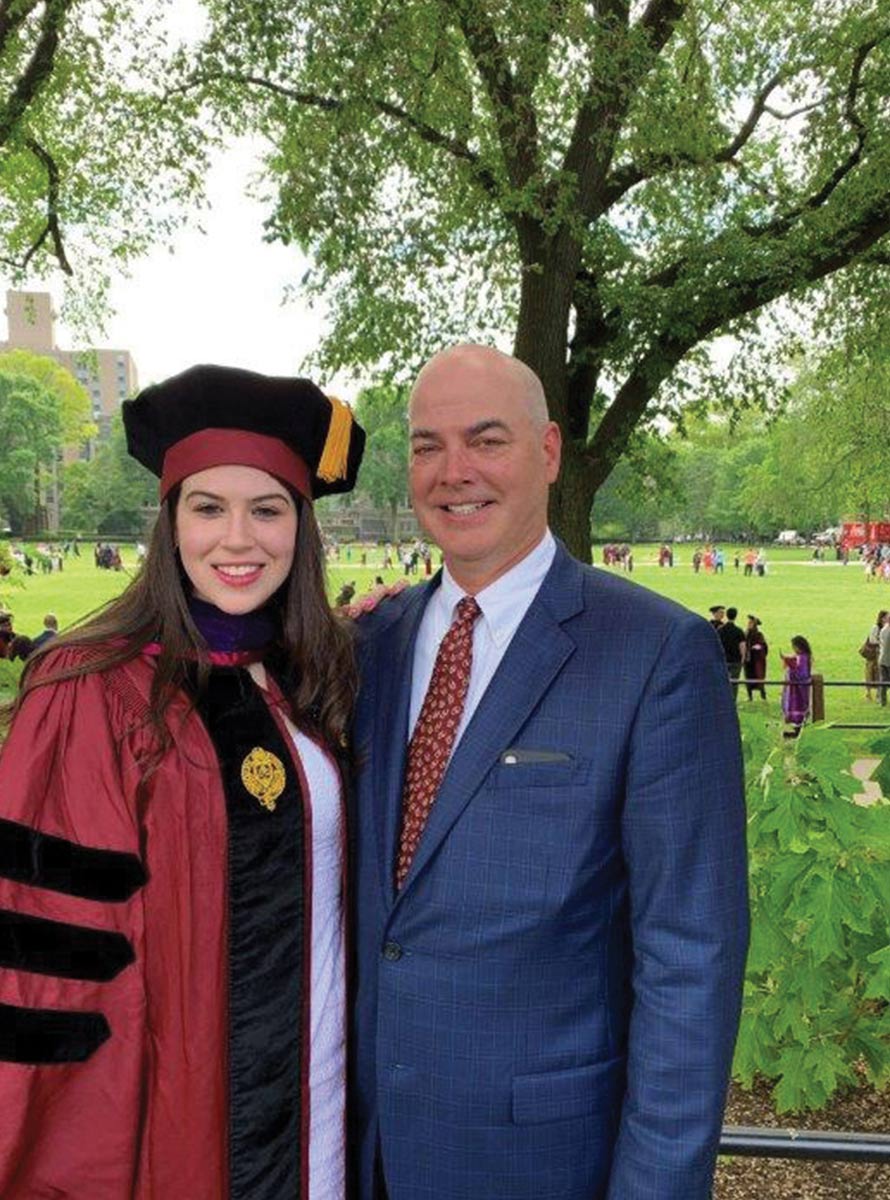
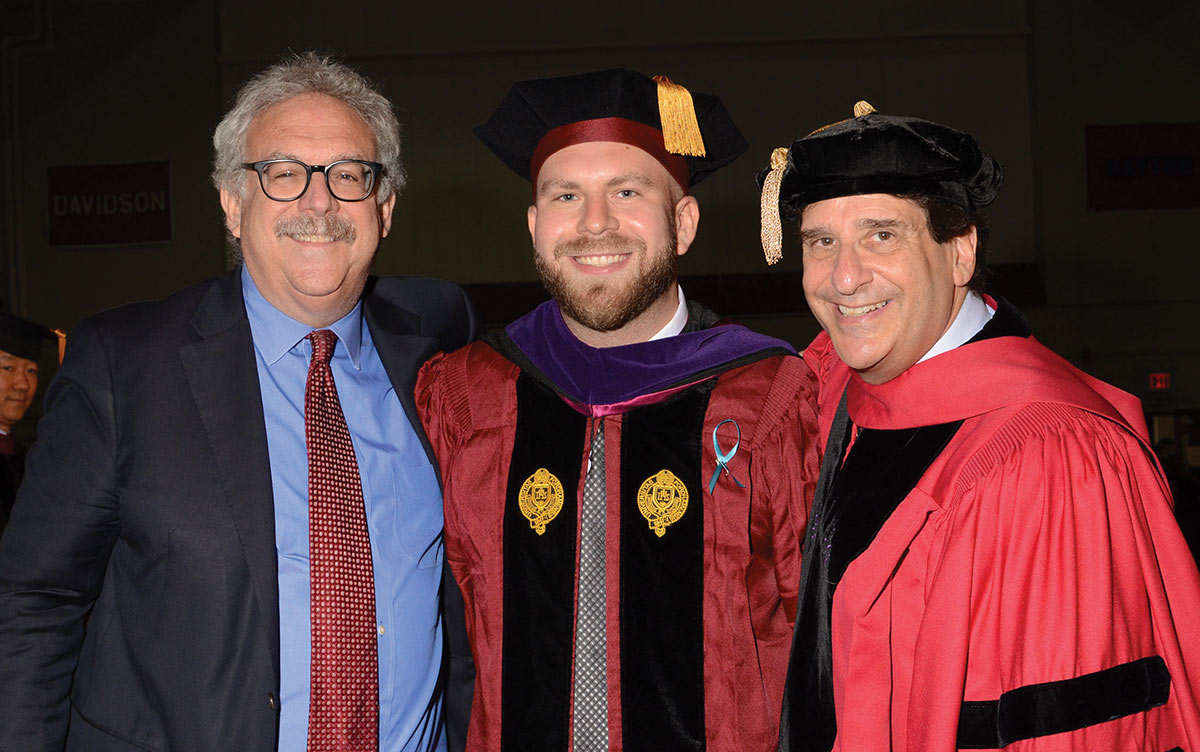
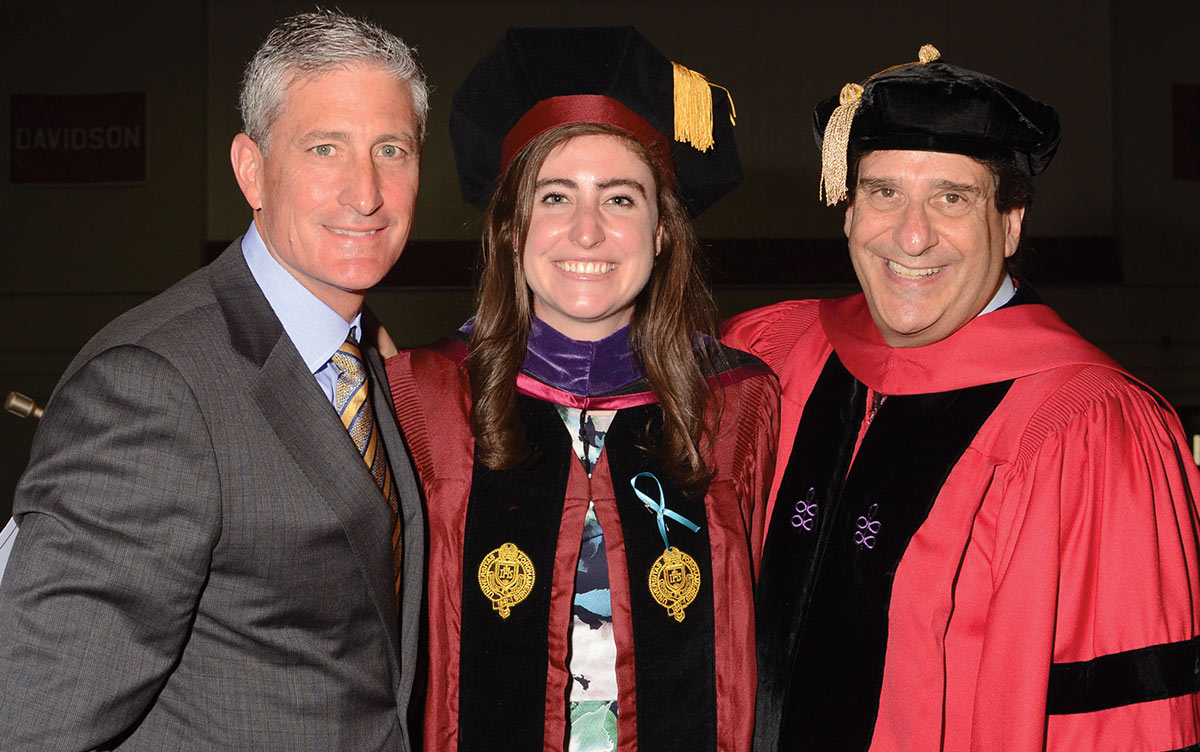

Here, photos of those alumni who took part in one of the Law School’s great traditions, which celebrates generations of Fordham Law graduates—the presenting of diplomas to graduating students by immediate family members who also attended the Law School.













Only @ FORDHAM LAW
Like most 1Ls, I’d heard a lot about being put on the spot in class with the Socratic method, and I was nervous about having to always be on top of my game. But I could relax my shoulders a bit that first day in torts when Professor Shugerman told us that if we weren’t prepared when he cold-called us about a case, there was a safety net: Instead of getting chastised or wasting everyone’s time trying to think of something to say, we could come to the next class with a poem we’d written about the case and read it.
And so, there came a day when I’d been having a hard week and had done only about half the reading. And when Professor Shugerman came around to my name on the list, and asked me a question about the case In re Kinsman Transit Co. (1964), I just said, “Can I do a poem?”
It’s embarrassing when you’re not prepared, so that night, I went home with the goal of not only understanding the case—which was about a collision between two ships and who was liable—but also writing something memorable and entertaining.

Fordham Lawyer
Attn: Communications Office
Fordham Law School
150 West 62nd Street
New York, NY 10023
Email:
fordhamlawyer@law.fordham.edu
Online:
law.fordham.edu/fordhamlawyer
Assistant Dean for Advancement and AVP for External Relations
Youngjae Lee
Associate Dean for Research
Julie Smith
Senior Director of Alumni Relations, Special Events, and Office of Public Programs
Elizabeth McKeveny
Senior Director of Development Operations

